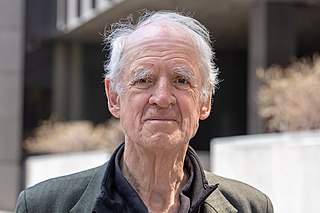A Quote by Charles Taylor
There is a widespread sense of loss here, if not always of God, then at least of meaning.
Related Quotes
As soon as you look at the world through an ideology you are finished. No reality fits an ideology. Life is beyond that. That is why people are always searching for a meaning to life. But life has no meaning; it cannot have meaning because meaning is a formula; meaning is something that makes sense to the mind. Every time you make sense out of reality, you bump into something that destroys the sense you made . Meaning is only found when you go beyond meaning.
For me, in those days, the great question was: Does God exist? Or doesn't God exist? Can we, by an attitude of faith, attain to a sense of community and a better world? Or, if God doesn't exist, what do we do then? What does our world look like then? In none of this was there the least political colour.
Out of the multitude of our sense experiences we take, mentally and arbitrarily, certain repeatedly occurring complexes of sense impression (partly in conjunction with sense impressions which are interpreted as signs for sense experiences of others), and we attribute to them a meaning the meaning of the bodily object.
Meaning can only be understood in relation to its environment. Therefore, the words only make full sense in context... There are no absolutes, there is no meaning without relationships, everything is not only interacting but interdependent. The kahunas use this idea to help give a person a powerfully secure sense of significance, while at the same time teaching him that to heal himself is to heal the world, and to heal the world is to heal himself. This is not a loss of individuality, but an understanding that individuality itself is a relationship with the environment.
In the Old Testament, the God of the Prophets never was completely on Israel's side. There was a primitive national religion, but it was always a transcendent God who had judgment first in the House of God. This is the true religion. It has a sense of a transcendent majesty and a transcendent meaning so that that puts myself and the foe under the same judgment.
I was very curious about the world even at a young age, and I don't know at what point I became aware that other cultures believed in different religions, and my question was, 'Well, why don't they get to go to heaven then?' And the answer was always, 'Well, everyone gets a chance - meaning at the word of God as it was described to me then. And that didn't sit well with me then. But in times of trouble or discord, it's a great comfort. And it wasn't till I left home that I really came to the conclusion that it didn't make sense to me for many other reasons.









































